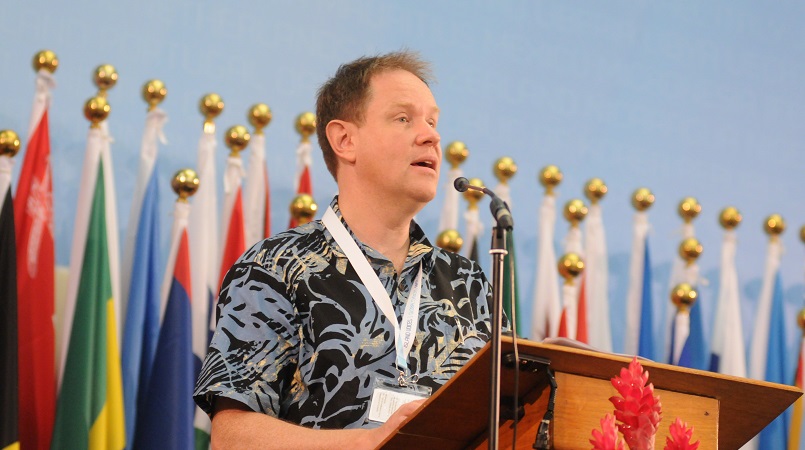
Twenty Pacific Island countries and territories will soon have access to significantly stronger data about renewable energy options through the Sustainable Energy Industry Development Project.
The project will also help the countries manage and integrate various renewable energy sources into existing power systems.
Pacific Island countries have some of the world’s highest electricity prices, and each country spends as much as 25 percent of their gross domestic product to import petroleum in order to provide essential services.
“Renewable energy sources like wind and solar are becoming increasingly vital to the Pacific region, which relies heavily on imported fuel, making it especially vulnerable to petroleum fuel supply and price changes,” said Franz Drees-Gross, World Bank Country Director for Papua New Guinea, Timor-Leste and the Pacific Islands.
“This project will provide the know-how for Pacific Island governments to make informed decisions on the best energy sources for their country, leading to more sustainable, reliable and affordable electricity for the people of the Pacific.”
The project will also help improve the region’s long-term disaster risk planning in the energy sector. With the Pacific highly vulnerable to natural disasters and climate change, changing weather patterns not only impact energy production, but are also major considerations for the design, construction, location and operations of energy infrastructure.
“By improving the planning of where and how energy infrastructure is built, Pacific governments will be in a stronger position to protect and maintain power sources, which are critically important at all times, but especially when disasters inevitably strike,” said Drees-Gross.
The Pacific Power Association—a key regional body that coordinates the Pacific’s utility providers—will implement the project, along with private sector and development partners.
“Many Pacific Island governments have set strong goals for the amount of renewable energy they want to generate in the near future,” said Andrew Daka, Executive Director of the Pacific Power Association.
“Reliable and independent data will be critical to achieving this and we are looking forward to working with the Pacific Islands Countries and Territories through our member utilities to maximize the value of this project.”
This project will be financed through a series of grants totaling US$5.66 million: US$1.92 million grant from the Climate Investment Fund’s Scaling Up Renewable Energy in Low-income Countries Program (SREP), which was approved today by the World Bank’s Board of Executive Directors; a US$3.47 million grant from the Small Islands Developing States Initiative (SIDS DOCK) Multi-donor Trust Fund under the Energy Sector Management Assistance Program (ESMAP) administered by the World Bank; and a US$0.27 million grant from the Government of Japan under the Global Facility for Disaster Reduction and Recovery (GFDRR), a global partnership managed by the World Bank.
